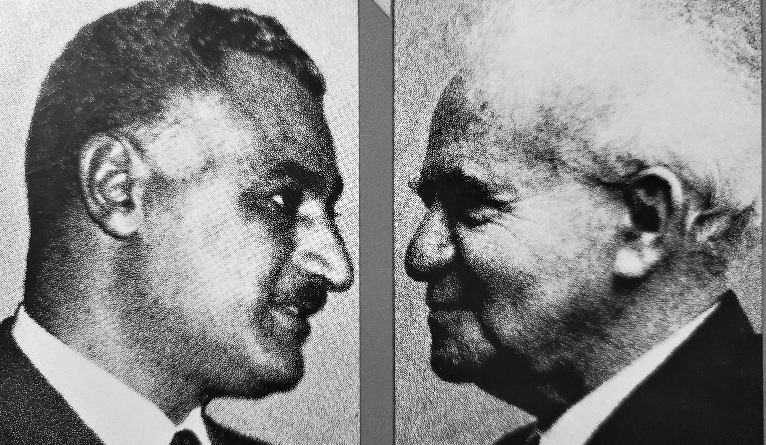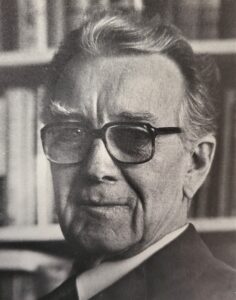
Elmore Jackson, Quaker UN Representative in New York, shuttles quietly between Cairo and Tel Aviv, meeting with Nasser, David Ben-Gurion and other Egyptian and Israeli officials. Jackson’s efforts yield a brief postponement of a major Israeli raid in the Gaza Strip but no lasting agreement. The Israeli raid on Khan Yunis on August 31 in response to guerrilla incursions and Nasser’s announcement in late September of an arms deal with Czechoslovakia end his mission.
In private conversation with Jackson, Nasser describes how he came to trust and respect Quakers through long evening conversations with AFSC relief workers about Quaker and Islamic beliefs and social ethics when he was chief-of-staff of the Egyptian Army brigade surrounded by Israeli forces at Faluja near Gaza. The Quaker workers were then travelling between Gaza and Faluja to provide food and medical care to the Palestinian population.

Egypt proposes through Jackson a partial return of Palestinian refugees to Israeli-held territory and compensation for others, along with the cession of some land in the Negev to Jordan to create a land-corridor across the Negev linking Egypt and Jordan. After contacts in Washington and New York, Jackson shuttles between Cairo and Tel Aviv and Jerusalem, making five trips between August 26 and September 9, 1955. He meets repeatedly with Nasser and with Israeli Prime Minister Moshe Sharett and Defense Minister David Ben-Gurion. He also keeps U.S. State Department officials apprised of his progress. Ben-Gurion, who says he would only accept border adjustments if Israel could have Gaza, is less receptive to Egypt’s proposal than Sharett. Israel goes ahead with the Khan Yunis reprisal raid, in the Gaza Strip, on August 31. Seventy-two Egyptian soldiers and Palestinians and one Israeli are killed. Frustrated by Egypt’s vulnerability to Israel and his failure to obtain arms from the West, Nasser announces the Czech arms deal on September 27.